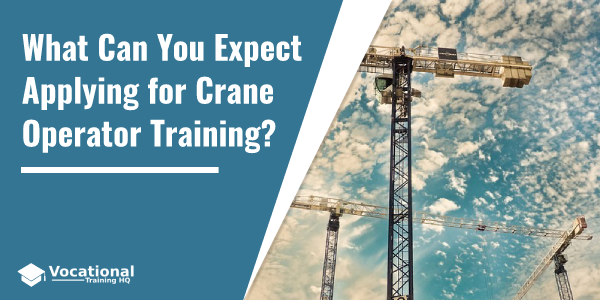If you are thinking about the ways to increase your income, you need to know that the best way to do it is to further your education.
It is always a good idea to improve yourself, learn smth new, get qualified for new tasks, and so on.
You can increase your income significantly.
It is up to you what new skills you want to learn.
If you are interested in heavy construction and have some background in this sphere, you should consider becoming a certified crane operator.
Article Table of Contents
Why Crane Operator School?
Before enrolling in a crane operator certification program, it is important to understand whether it worth your time and effort.
The fact is that it is for sure your time and money.
First of all, it can help you increase your income significantly.
According to payscale.com, the average income of a crane operator is about $24.42 per hour that is higher than other rates in the sphere.
Moreover, after gaining some experience, you can get an even higher salary.
There are numerous businesses that are looking for qualified crane operators that meet a bunch of requirements of the industry.
One other point is that the quality of your training results in the quality of your work.
When it comes to construction, this point is very important as it allows avoiding mistakes and accidents.
After obtaining your training through a certified school, you can perform your job well and reduce accidents.
What Will You Learn in Crane Operator School?
Before applying for a crane operator course, you need to understand what you are going to learn during your training.
Usually, an accredited training program for crane operators can provide you with several NCCCO certifications.
The NCCCO, or National Commission for the Certification of Crane Operators, is a nonprofit organization that is responsible for the development of industry standards.
The NCCCO offers a whole variety of certifications inclus=ding such options as:
- the Fixed Cab Hydraulic Crane;
- the Swing Cab Hydraulic Crane;
- the Lattice Boom Truck Crane;
- the Lattice Boom Crawler Crane;
- the Boom Truck Fixed Cab Crane;
- the Service Truck Crane;
- Rigger Level 1;
- Signalperson;
- Tower Crane Operator.
After completing an accredited training program, you’ll be a qualified and employable specialist with great career prospects.
What Kind of Training Is It?
Hands-on training is an important part of your education.
To get your NCCCO certification, you need to complete a written test.
However, practical experience is very important when it comes to your future job as you need to know how to operate a real crane.
Usually, about half of your training course will be dedicated to practical classes that involve numerous types of cranes.
Your program should include such disciplines as rigging loads, using various attachments, troubleshooting, and OSHA safety requirements.
Also, it is important to get enough practical experience while training under the supervision of qualified and experienced tutors.
Will it Qualify You For the Real World?
It is clear that operating a crane in a classroom environment and on a real construction site differs significantly.
The ability to recreate realistic working situations during practical classes is very important.
A good training program will for sure provide you with such opportunities.
For example, you need to build a set of skills required for performing a certain task such as assembling cell towers.
Also, there can be some more complicated tasks such as tandem lifts.
It is a very difficult task as two cranes should work together to lift a large object.
It is not only difficult but also very dangerous so you need to learn how to perform it properly.
Also, during your training, you’ll learn to perform blind picks.
It is when you need to assemble certain parts of a structure without the ability to see it properly.
This task requires a lot of skills for one person.
Applying for an accredited training program, you’ll learn to perform such picks as well as to provide guidance to other crane operators.
Read the full guide: How to Become a Heavy Equipment Operator

